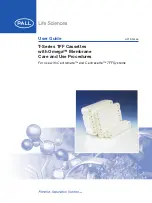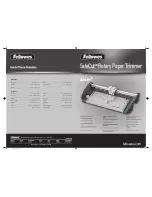
Tool change
Item no. 10404241, Revision 03
29 ( 40 )
10.2.1
Changing the tool
Note: Ensure concentric run-out quality.
u
Only use tool mounts, clamping nuts, and clamping devices that are bal-
anced according to DIN ISO 1940 balance grade G DIN ISO 1940.
1
End face
2
Clamping nut
(optional accessory)
3
Collet
(optional accessory)
4
Tool Holder
(optional accessory)
5
Clamping device
(optional accessory)
Proceed as follows to change the tool:
Ü
Screw out the clamping nut type "D" and type "ER".
Ä
The collet is also pulled out in the process.
Ü
Use the hook wrench to unfasten the clamping nut type "ER-MS"
and
the
collet.
Ä
Make use of the hook wrench from the scope of delivery of the HF spindle.
Ü
Remove the tool.
Ü
Remove the collet type "D" and type "ER" from the clamping nut.
Ü
Remove the collet type "ER-MS" from the taper of the mount
Note: Ensure functionality.
All contamination damages the collet, clamping nut, tool mount, etc. As a re-
sult, the function of the HF spindle is no longer guaranteed.
u
Clean the collet.
u
Clean the clamping nut.
u
Clean the thread of the shaft.
u
Clean the inner taper of the shaft.
Ü
Lightly grease the thread of the clamping nut.
Sample illustration:
Clamping nut type
Ü
Clamping nut type "ER-MS":
Ä
Push the collet into the taper of the mount.
Ü
Clamping nut type "D" and type "ER":
Ä
Push the collet into the clamping nut until it engages in the groove pro-
vided for this purpose.
The collet is inserted correctly when it is flush with the end face of the clamp-
ing nut. This is the only way in which to guarantee that the collet is also pulled
out when the clamping nut is loosened.
Ü
Insert the tool.
Ü
Make sure that the shank of the clamped tool does not press on the inner
stop of the tool mount once the clamping nut has been tightened.
Ü
To prevent the clamping nut from loosening, tighten it again after a short
period of operation and when the shaft is at a standstill.












































